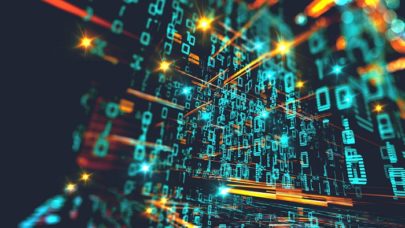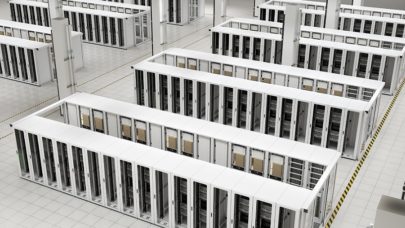
Nvidia Announces Database of 100K AI and HPC-enabled Brain Images
May 30, 2022
During a special address at ISC today, general manager and vice president of Accelerated Computing at Nvidia, Ian Buck, shared promising news for the future of Read more…

HPE Brings Startup Determined AI Into Its HPC Business Group
June 22, 2021
Making machine learning easier to use is all the rage in enterprise computing as more and more businesses are finding out that adopting and integrating AI is harder to do than they first anticipated. HPE, like other large technology vendors, has been hearing that message from customers and in response, has acquired Determined AI, a San Francisco... Read more…

The Role and Potential of CPUs in Deep Learning
April 14, 2021
Deep learning (DL) applications have unique architectural characteristics and efficiency requirements. Hence, the choice of computing system has a profound impa Read more…

Hardware Acceleration of Recurrent Neural Networks: the Need and the Challenges
July 27, 2020
Recurrent neural networks (RNNs) have shown phenomenal success in several sequence learning tasks such as machine translation, language processing, image captio Read more…

Nvidia Nabs #7 Spot on Top500 with Selene, Launches A100 PCIe Cards
June 22, 2020
Nvidia unveiled its Selene AI supercomputer today in tandem with the updated listing of world’s fastest computers. Nvidia also introduced the PCIe form factor of the Ampere-based A100 GPU. Nvidia’s new internal AI supercomputer, Selene, joins the upper echelon of the 55th Top500’s ranks and breaks an energy-efficiency... Read more…

IBM Boosts Deep Learning Accuracy on Memristive Chips
May 27, 2020
IBM researchers have taken another step towards making in-memory computing based on phase change (PCM) memory devices a reality. Papers in Nature and Frontiers Read more…
SiFive Accelerates Chip Design with Cloud Tools
March 25, 2020
Chip designers are drawing on new cloud resources along with conventional electronic design automation (EDA) tools to accelerate IC templates from tape-out to c Read more…

Micron Accelerator Bumps Up Memory Bandwidth
February 26, 2020
Deep learning accelerators based on chip architectures coupled with high-bandwidth memory are emerging to enable near real-time processing of machine learning a Read more…

- Click Here for More Headlines

Whitepaper
Transforming Industrial and Automotive Manufacturing
In this era, expansion in digital infrastructure capacity is inevitable. Parallel to this, climate change consciousness is also rising, making sustainability a mandatory part of the organization’s functioning. As computing workloads such as AI and HPC continue to surge, so does the energy consumption, posing environmental woes. IT departments within organizations have a crucial role in combating this challenge. They can significantly drive sustainable practices by influencing newer technologies and process adoption that aid in mitigating the effects of climate change.
While buying more sustainable IT solutions is an option, partnering with IT solutions providers, such and Lenovo and Intel, who are committed to sustainability and aiding customers in executing sustainability strategies is likely to be more impactful.
Learn how Lenovo and Intel, through their partnership, are strongly positioned to address this need with their innovations driving energy efficiency and environmental stewardship.
Download Now
Sponsored by Lenovo
Whitepaper
How Direct Liquid Cooling Improves Data Center Energy Efficiency
Data centers are experiencing increasing power consumption, space constraints and cooling demands due to the unprecedented computing power required by today’s chips and servers. HVAC cooling systems consume approximately 40% of a data center’s electricity. These systems traditionally use air conditioning, air handling and fans to cool the data center facility and IT equipment, ultimately resulting in high energy consumption and high carbon emissions. Data centers are moving to direct liquid cooled (DLC) systems to improve cooling efficiency thus lowering their PUE, operating expenses (OPEX) and carbon footprint.
This paper describes how CoolIT Systems (CoolIT) meets the need for improved energy efficiency in data centers and includes case studies that show how CoolIT’s DLC solutions improve energy efficiency, increase rack density, lower OPEX, and enable sustainability programs. CoolIT is the global market and innovation leader in scalable DLC solutions for the world’s most demanding computing environments. CoolIT’s end-to-end solutions meet the rising demand in cooling and the rising demand for energy efficiency.
Download Now
Sponsored by CoolIT
Advanced Scale Career Development & Workforce Enhancement Center
Featured Advanced Scale Jobs:
HPCwire Resource Library
HPCwire Product Showcase
© 2024 HPCwire. All Rights Reserved. A Tabor Communications Publication
HPCwire is a registered trademark of Tabor Communications, Inc. Use of this site is governed by our Terms of Use and Privacy Policy.
Reproduction in whole or in part in any form or medium without express written permission of Tabor Communications, Inc. is prohibited.
























